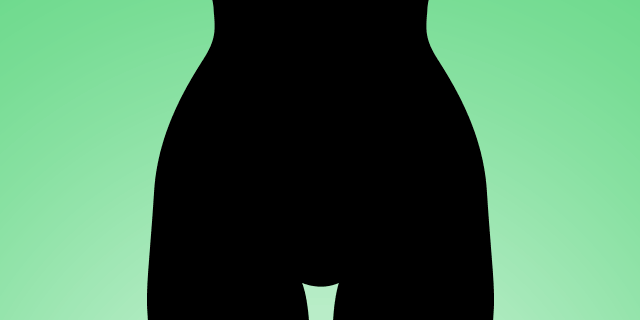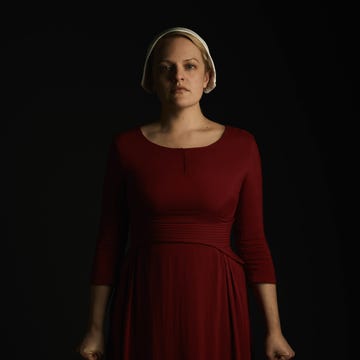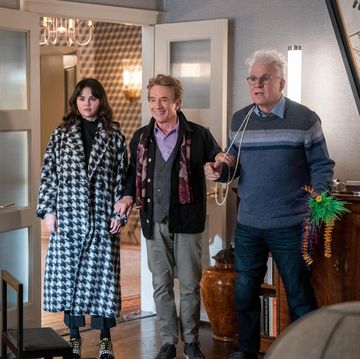When period stigma makes it onto the royal family's website (thanks Meghan), you know a lot of good work is being done.
From Amika George's campaign to introduce free sanitary products in UK schools to men fighting negative perceptions of menstruation in Kenya, people all over the world people are waking up to the fact that our bodies' natural bleed every month should never be a taboo.
Yet despite an increasingly open conversation, millions of women and girls around the world are still being held back because of their periods.
And new research has revealed just how deep the problem goes. Ahead of World Menstrual Hygiene Day (on May 28) charity Action Aid commissioned a poll which explores women’s feelings about their menstruation and the stigma that still surrounds the most natural of bodily functions.
The results are fairly shocking: more than one in three (37%) of women in the UK have experienced period shaming either through bullying, isolation or 'time of the month' jokes.
Nearly half (40%) of those who've been shamed said it was their partner who was responsible for the shaming.
Think back to your first period. Was it a joyous occasion? A thing to be celebrated? More than likely the answer to those questions is a big fat 'no.' And your experience isn't out of the ordinary. In fact, nearly half (46%) of UK women said they felt embarrassed the first time they got their period, 35% said they felt scared and 24% felt confused.
Perhaps the saddest takeaway is that women don't appear to grow out of feeling embarrassed about their periods. Over half (52%) said they hide sanitary products when carrying them to the toilet so as not to embarrass others, and 43% said they did this because they thought people would embarrass them or make jokes.
And age didn't matter here - this applied to women in their late forties as well as their twenties.
'It is uncomfortable to see that even in the UK women are experiencing negative feelings about what should be an empowering rite of passage,' says Girish Menon, chief executive of ActionAid.
'Women and girls have the right to control and make choices about their own bodies. When they are denied the ability to manage their periods with dignity, cycles of poverty and gender inequality become harder to break.'
Period poverty, of course, isn't simply a UK problem - it's worldwide. Last year, charity Freedom For Girls redirected some of its supplies for schoolgirls in Kenya to schoolgirls in the UK.
Yet in Nepal, women and girls are banished from their homes to live in mud huts during their periods. They're denied interaction with family members because of cultural beliefs they are untouchable during menstruation. They're viewed as 'impure' and some believe the presence of a woman who is on her period will bring misfortune upon the family.
'I became scared to stay alone in the chhaupadi-goth (hut),' explains 14-year-old Ishu. She lives in the Doti District, Nepal.
'I’m scared of ghosts and snakes and some bad people. I can’t bring the warm clothes in the chhaupadi-goth, that’s why I feel cold in the winter. There are no windows and during the summer season I feel really warm inside.'
Period stigma doesn't discriminate. Whether you're being bullied by a classmate in Leeds or isolated in a windowless hut, the shame and embarrassment around menstruation continues to undermine the confidence of women and girls.
And, as Action Aid explains, this in turn undermines their confidence being in public on their periods, which leads to increasingly high school drop-out rates (in Africa, it's estimated to be one in 10).
The knock-on effect? Those not in school are more likely to be married young or fall pregnant, which simply perpetuates a cycle of poverty and gender inequality.
Action Aid are encouraging women and girls worldwide to have the confidence to say #MyBodyIsMine. To do this, they've written an open letter, which has been signed by the likes of Emma Thompson, Gemma Chan and Sara Pascoe, and hopes to highlight the magnitude of the problem.
As the letter writes: 'To solve the problem [of period poverty] once and for all, we need [...] provide access to products wherever possible; and address the extensive gender inequality that is the root cause of it. We must not allow women and girls to be identified primarily by their bodily functions and thus made to feel deficient or inferior.'
The focus is body integrity: women, wherever we live, should never be held back by our periods.
To find out more about the campaign click here.















